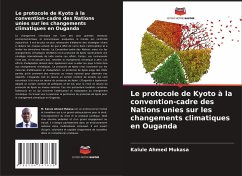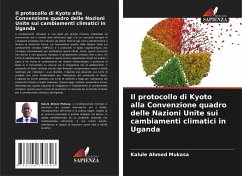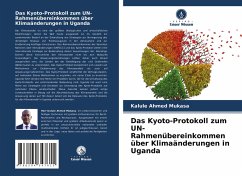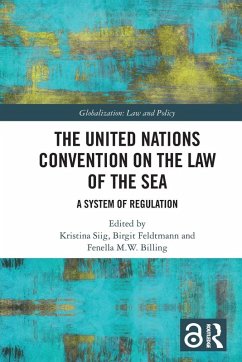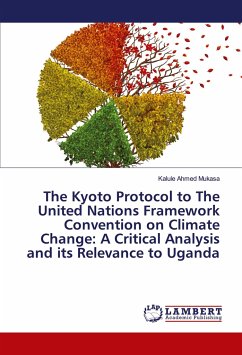
The Kyoto Protocol to The United Nations Framework Convention on Climate Change: A Critical Analysis and its Relevance to Uganda
Versandkostenfrei!
Versandfertig in 6-10 Tagen
40,99 €
inkl. MwSt.

PAYBACK Punkte
20 °P sammeln!
Climate change is one of the greatest environmental and economic threats facing the world today. There is a growing need to develop strategies that will reduce current levels of greenhouse gases in the atmosphere and curtail future emissions. The United Nations Framework Convention for Climate Change (UNFCCC) and the Kyoto Protocol represent an international strategy to combat these effects. Admittedly, these instruments have not, and cannot, retard climate change to zero. Adaptation efforts should therefore equally be directed towards helping countries cope with the changing weather patterns....
Climate change is one of the greatest environmental and economic threats facing the world today. There is a growing need to develop strategies that will reduce current levels of greenhouse gases in the atmosphere and curtail future emissions. The United Nations Framework Convention for Climate Change (UNFCCC) and the Kyoto Protocol represent an international strategy to combat these effects. Admittedly, these instruments have not, and cannot, retard climate change to zero. Adaptation efforts should therefore equally be directed towards helping countries cope with the changing weather patterns. The Kyoto protocol has focused on both mitigation and adaptation measures. The Kyoto Protocol requires state parties to take action at the national level to realise its objectives. Uganda is implementing a number of projects that are critical to the implementation of the Kyoto Protocol. Uganda has also adopted a number of policies and laws for the implementation of the Kyoto Protocol at thedomestic level. These laws however have some weaknesses in respect of climate change mitigation and adaptation. This work seeks to examine the relevance of the Kyoto protocol to Uganda's climate change.



